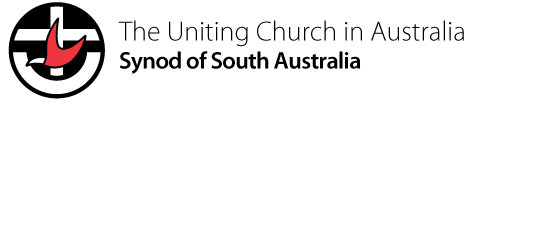Risk Management Committee

Uniting Church Crisis Hotline: (08) 8236 4299
The Risk Management Committee (RMC) is a sub-committee of the Resources Board. It was established to ensure that appropriate risk management is occurring throughout the Synod, on behalf of Standing Committee. Since it was first convened in 2015, it has established a co-ordinated and systematic process which provides direction on Synod-wide risk management.
What is Risk Management?
Risk Management is about having policies, procedures and practices in place to identify, analyse, assess, treat and monitor risk. Risks facing the Synod can be classified into six broad categories
- Spiritual / Theological
- Personal
- Legal Liability and Compliance
- Operational
- Strategic and Reputational
- Financial
- Property
- Environmental
(For more information on specific risk management see the Insurance Services and Work Health and Safety webpages.)
The Risk Management Committee has established four key documents to assist the Synod in managing risk.
UCSA RM Policy Framework Approved June 2017 (313 kb PDF)
The Risk Management Policy applies to the activities of the Uniting Church in South Australia Synod. The policy
- provides a framework for identification, assessment, treatment, documentation, monitoring and review of risk
- defines the risk culture and risk appetite within the Synod, and
- details the responsibilities and accountabilities for risk management.
Crisis Management Plan
The Crisis Management Plan (CMP) deals with the generic initial steps to be taken during a time of crisis but does not deal with specific management of the crisis itself, which will vary depending on the nature of the incident. This document includes a Crisis Management Action Plan which provides guidance on the critical pastoral and communication tasks to be undertaken during and immediately after a crisis. To enhance the response to any crisis event, the CMP should be used in conjunction with the Business Continuity Plan and the Disaster Recovery Plan, together with normal corporate decision-making processes within the UCSA.
Business Continuity Plan (in progress)
The Business Continuity Plan (BCP) assists the Synod to ensure that critical business activities can be maintained or restored in the event of material disruptions and that the financial, legal, regulatory, reputational and other material consequences are minimised.
Disaster Recovery Plan (in progress)
The Disaster Recovery Plan (DRP) outlines Synod’s strategy for responding to a disaster and provides information essential to the continuity of critical business functions, primarily relating to Information Technology and Telecommunication (IT&T) systems. The plan identifies the resources needed to:
- Ensure safety of personnel;
- Communicate effectively with internal and external stakeholders;
- Provide timely emergency support to the community;
- Protect assets and vital records (electronic data and hardcopy); and
- Maintain continuity of mission-critical services and support operations.
What is a crisis?
A crisis refers to any sudden, unplanned event which causes major disturbances to the Uniting Church, and would trigger fear and threat amongst staff, clergy, volunteers or Uniting Church members. Examples include bushfires, floods, earthquakes, accidents, outbreaks of sickness and malevolent acts such as kidnapping or armed hostility.
Should I report a crisis?
Reporting a crisis allows the Crisis Management Team, managers and employees to respond quickly and effectively and assists in keeping all affected parties safe and well-informed.
